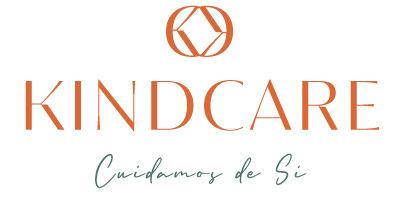Currently, the average life expectancy is 81.49 years. However, the increase in average life expectancy has brought numerous challenges for caregivers and seniors because natural aging brings with it an increased risk of chronic diseases, such as heart disease, diabetes, respiratory problems, and other age-related conditions. These health complications affect daily activities and require a growing need for support from family, especially the Elderly person’s children. Economic issues also arise, as healthcare expenses and the constant need to purchase other items (diapers, creams, adapted clothing and footwear, and various equipment) increase, putting a strain on the entire family’s finances. Additionally, there is a need for free time to accompany seniors to medical appointments, including appointments, tests, and treatments. Since both spouses currently work in most families, supporting the elderly person is a burdensome task for the family.
However, social support is available to help meet these needs. Below are some examples:
Elderly Solidarity Support (ESS)
Low-income seniors who have already completed 66 years of age and have lived in Portugal for five months can apply for the Elderly Solidarity Supplement (ESS), a monthly cash benefit. For more information, seniors or their family members can visit a Social Security Office or Citizens’ Bureau that offers this service. Alternatively, you can consult the website provided by the Portuguese government: https://www2.gov.pt/guias/apoio-a-familia/apoio-social-para-idosos#complementosolidarioparaidosos
Home Support Service
Social Security has a service that provides assistance to families or individuals who are at home, in a situation of physical and/or mental dependence and who cannot ensure, temporarily or permanently, the satisfaction of their basic needs and/or the performance of instrumental activities of daily living, nor have the family support for this purpose.
Examples of these services include personal and home hygiene care, meal provision and support, entertainment and social activities, transportation, among others.
To find out what services are available, you can call the Social Security telephone support line, use the online platform Direct Social Security, or consult the website provided by the Portuguese government: https://www2.gov.pt/servicos/obter-informacoes-sobre-o-apoio-social-para-pessoas-idosas-servico-de-apoio-domiciliario
Day Centers
Day centers are a great way for seniors to stay occupied, avoid isolation, and enjoy their main meals. This way, they avoid the need to cook, shop, or perform other related tasks. For more information, you can also visit Social Security or Citizen Service Centers. You can also check which day centers are available in the senior’s area of residence and contact them for more information.
Informal Caretaker
An informal caregiver is a person who, without being a healthcare professional, provides regular or permanent care to someone in a dependent situation, usually a family member. This care may include assistance with daily activities, accompanying them to appointments, and managing medication, among other things. In Portugal, the Informal Caregiver Statute aims to recognize and support those who take on this role. This status confers rights and benefits, such as rest periods, access to support services, and, in the case of the primary caregiver, the ability to receive a subsidy. Thus, an informal caregiver may be:
- secondary informal caretaker – if they regularly, but not permanently, assist the person they care for, they may receive remuneration for their work or receive compensation for the care they provide to the person they care for. They have specific rights, such as five days of annual leave for care, teleworking or flexible hours, 15 days of justified absences, and protection against dismissal and discrimination. For more information, see https://www2.gov.pt/guias/cuidador-informal
- primary informal caretaker – if they permanently accompany the person being cared for, live in the same household and do not receive remuneration from employment or for the support they provide to the person being cared for. The primary informal caregiver may be entitled to the support subsidy to the main informal caretaker.
Despite all the government support, urgent support situations may arise that require rapid resolution or intervention. At the same time, it’s also important to consider that informal caregivers also need help and may be absent for appointments and other activities. In these situations, you can contact KindCare and request assistance for your elderly relative.
Sources:
https://www2.gov.pt/guias/cuidador-informal
https://eportugal.gov.pt/servicos/requerer-o-subsidio-de-apoio-ao-cuidador-informal-principal
https://www2.gov.pt/guias/apoio-a-familia/apoio-social-para-idosos#complementosolidarioparaidosos
